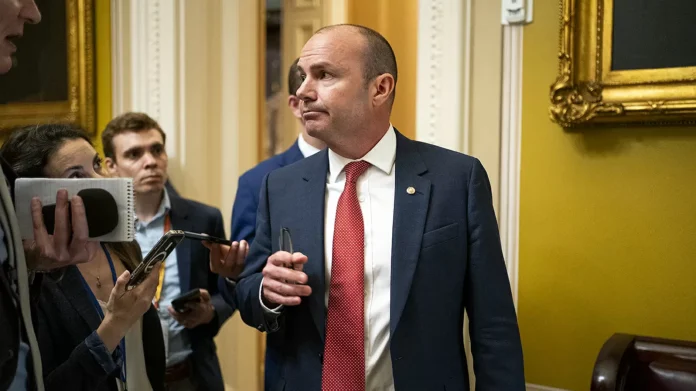Senate Republicans have recently proposed a revised plan that has caused quite a stir among environmentalists and conservationists. The plan, if implemented, would result in the sale of up to 1.2 million acres of publicly owned lands. This new development has raised concerns and sparked debates about the future of our natural resources.
According to legislative text obtained by The Hill, the updated plan would require the sale of between 0.25 and 0.5 percent of the 245 million acres currently owned by the Bureau of Land Management (BLM). This means that a significant portion of our public lands, which are meant to be protected and preserved for future generations, could potentially be sold off to private entities.
The proposal has been met with strong opposition from environmental groups, who argue that the sale of public lands would have detrimental effects on our environment and wildlife. They fear that the lands would be exploited for commercial gain, leading to deforestation, pollution, and loss of biodiversity.
Moreover, the sale of public lands would also mean that these areas would no longer be accessible to the general public. This goes against the very essence of public lands, which are meant to be enjoyed and appreciated by all. It would also limit opportunities for outdoor recreation and could potentially harm local economies that rely on tourism and outdoor activities.
The revised plan has been criticized for its lack of transparency and public input. The decision to sell off public lands should not be taken lightly and should involve thorough discussions and considerations from all stakeholders. However, the updated text was obtained without any public notice or input, raising questions about the motives behind this proposal.
On the other hand, supporters of the plan argue that the sale of public lands would generate revenue for the government and help reduce the national debt. They also claim that the lands being considered for sale are not of significant ecological or recreational value and are better off in the hands of private owners.
However, this argument fails to acknowledge the long-term consequences of selling off public lands. Once these lands are gone, they can never be replaced. We must remember that these lands are not just pieces of property, but they hold immense value in terms of their ecological, cultural, and historical significance.
Furthermore, the proposal to sell off public lands goes against the promises made by our government to protect and preserve our natural resources. It also contradicts the efforts being made globally to combat climate change and protect our planet’s biodiversity.
It is crucial to note that public lands are not just owned by the government; they belong to all of us. It is our responsibility to ensure that these lands are protected and managed sustainably for future generations. The sale of public lands would not only be a short-sighted decision but also a betrayal of our duty to safeguard our natural heritage.
In conclusion, the revised plan from Senate Republicans to sell off 1.2 million acres of publicly owned lands is a cause for concern and must be carefully evaluated. The potential consequences of this proposal on our environment, wildlife, and public access to these lands cannot be ignored. It is our responsibility to speak up and urge our government to reconsider this plan and prioritize the protection of our public lands for the benefit of all. Let us not forget that these lands are not just for sale; they are priceless treasures that must be preserved for future generations.

